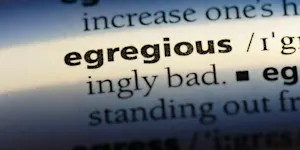What Makes This Word Tick
"Prescient" has that special ring to it; it whispers foresight and knowledge before its time. It's an adjective that suggests an uncanny ability to predict events or understand things before they happen. When someone or something is "prescient," there's a hint of magic or at least some impressive intuition.
If Prescient Were a Person…
Imagine meeting someone at a party who seems to know the punchline before the joke is even finished. That's our personified Prescient. They’re the ones who predict the rain before you see a cloud in the sky and always have an umbrella at hand. They might come across as the life coach who always knows exactly what's coming next in life's story.
How This Word Has Changed Over Time
From its Latin roots, "praescient-" meaning "knowing beforehand," the word hasn't drifted far from its origins. However, its usage has evolved from mystical soothsaying to more pragmatic applications, like predicting economic trends or technological breakthroughs.
Old Sayings and Proverbs That Use Prescient
While you won’t find "prescient" in age-old proverbs directly, the sentiment is there in sayings like "forewarned is forearmed." The idea of preparedness thanks to knowing what’s to come is timeless.
Surprising Facts About Prescient
The term "prescient" may remind some of the Cassandra myth from Greek mythology. Poor Cassandra had the gift of prophecy but was cursed never to be believed. A prescient person today, however, might be likened to a modern-day expert whose forecasts are actually trusted!
Out and About With This Word
In conversations, "prescient" often strikes a tone of admiration or awe, possibly tinged with envy. It usually pops up in discussions about successful predictions in fields like finance, weather forecasting, or political strategy.
Pop Culture Moments Where Prescient Was Used
The word finds its place in film reviews, often describing how certain sci-fi or satirical works foresaw societal changes. Movies like "The Truman Show" or TV series like "Black Mirror" might be called prescient for their ahead-of-their-time insights.
The Word in Literature
"Prescient" thrives in the realms of science fiction and fantasy. Authors use it to describe characters who have a prophetic touch or narratives that predict technological advances. Think of it as a common trait among wizards and futurists alike.
Moments in History with Prescient
Reflect on Winston Churchill’s foresight during the early days of World War II. His warnings about Nazi Germany were indeed prescient, foretelling the conflict that would soon engulf Europe.
This Word Around the World
Across the globe, every culture has its version of individuals thought to have foresight. In French, you might hear "préscient," while in Spanish, it’s "percipiente." Different languages, but the same curious power of vision.
Where Does It Come From?
"Prescient" derives from the Latin word "praescient-", formed from "prae" (before) and "scire" (to know). It's been part of the English language since the late 16th century, bringing with it centuries of foreknowledge.
How People Misuse This Word
Sometimes "prescient" is used too liberally for mere coincidences rather than genuine foresight. It's not just about being lucky; it’s about having informed anticipation.
Words It’s Often Confused With
Prophetic: Often implies a divine origin to the foresight, whereas prescient is more about intuition.
Clairvoyant: Suggests seeing beyond the physical realm, unlike the more worldly prescient.
Predictive: Used more for data and statistics, while prescient conveys a more personal insight.
Additional Synonyms and Antonyms
Synonyms for prescient include "foresightful," "anticipatory," and "far-seeing." Antonyms are "unperceptive," "uninformed," and "shortsighted."
Want to Try It Out in a Sentence?
"Her prescient analysis of the market trends saved the company from a disastrous investment."
















